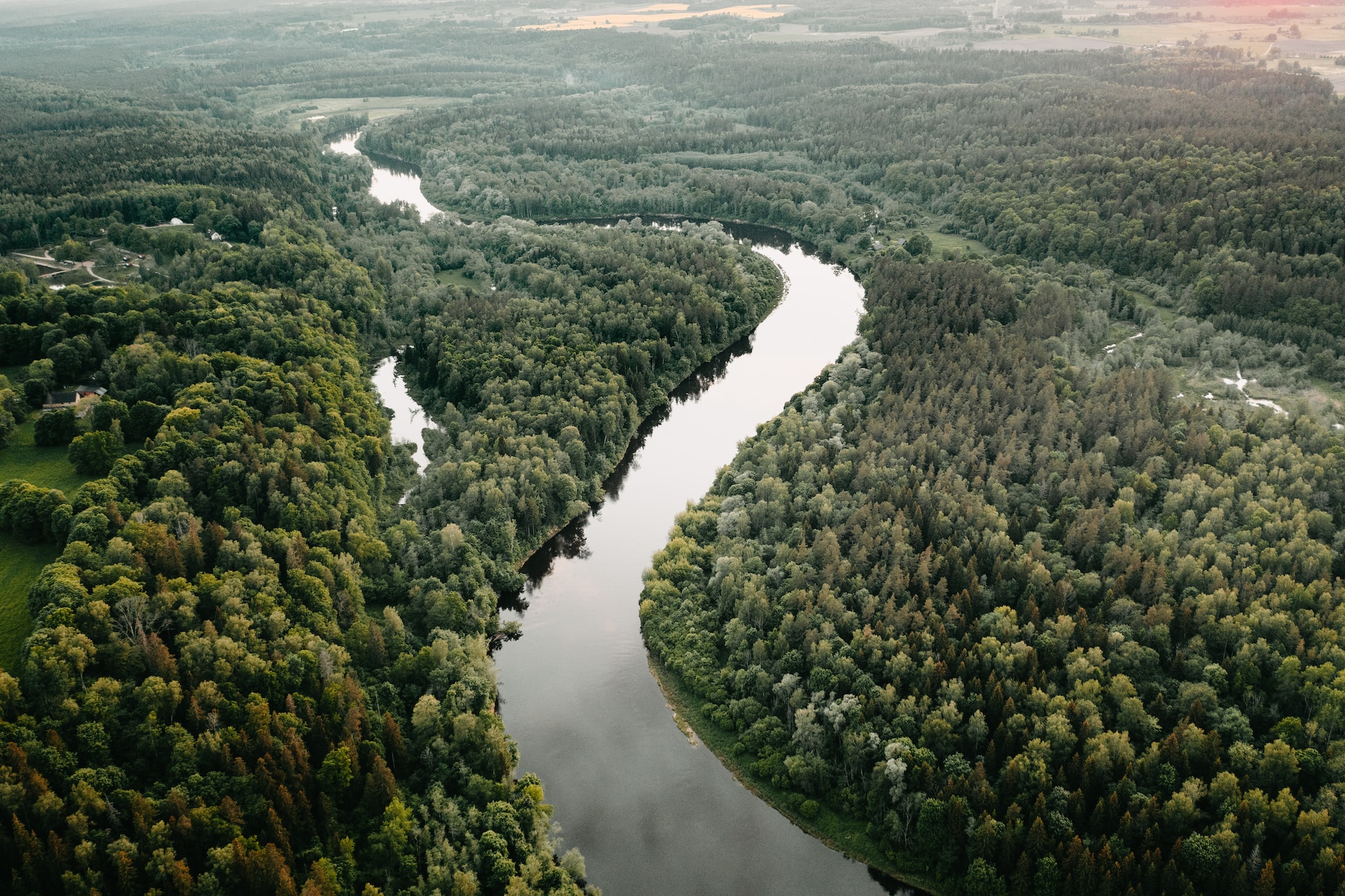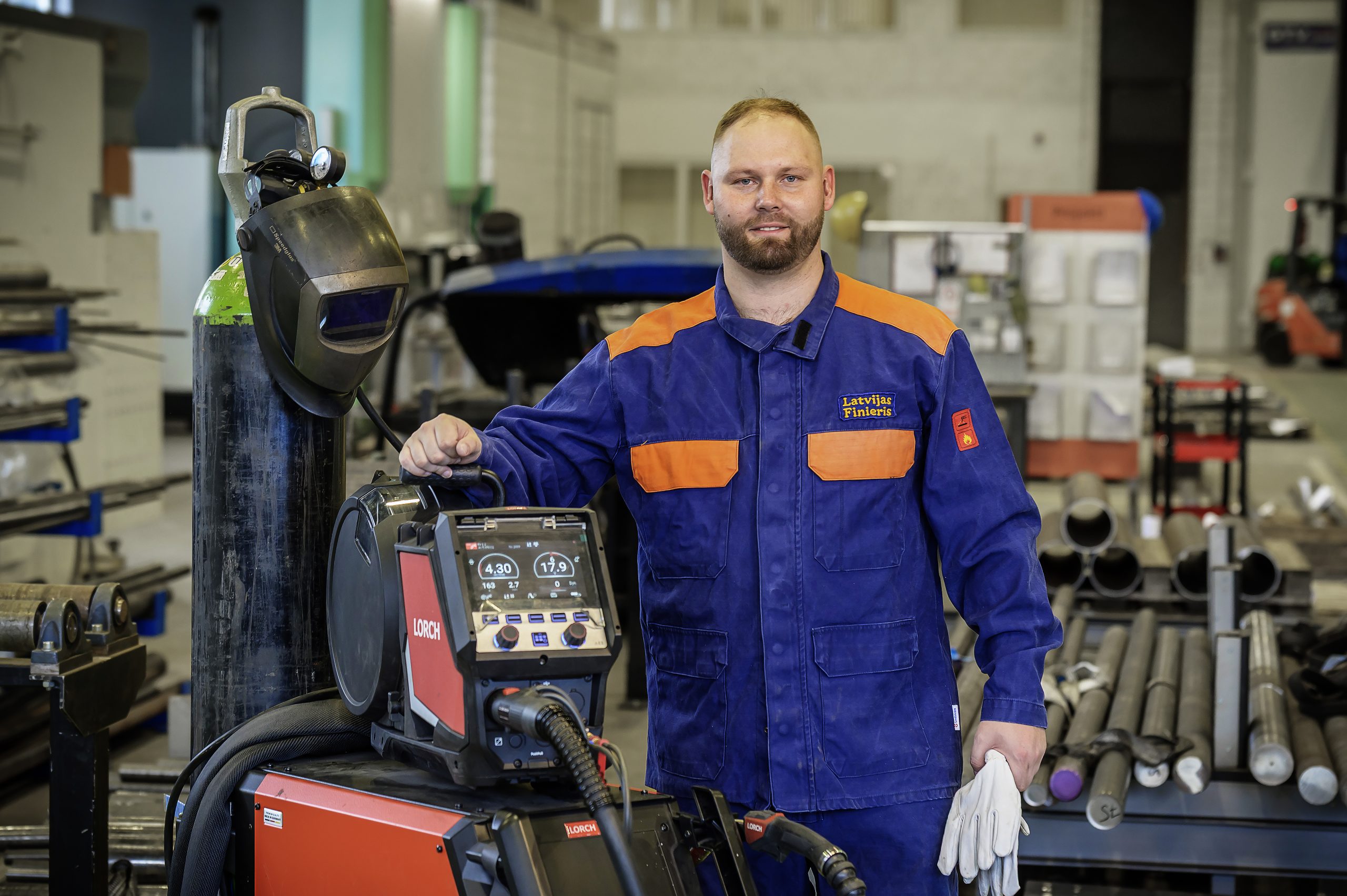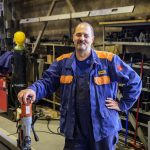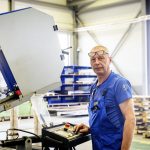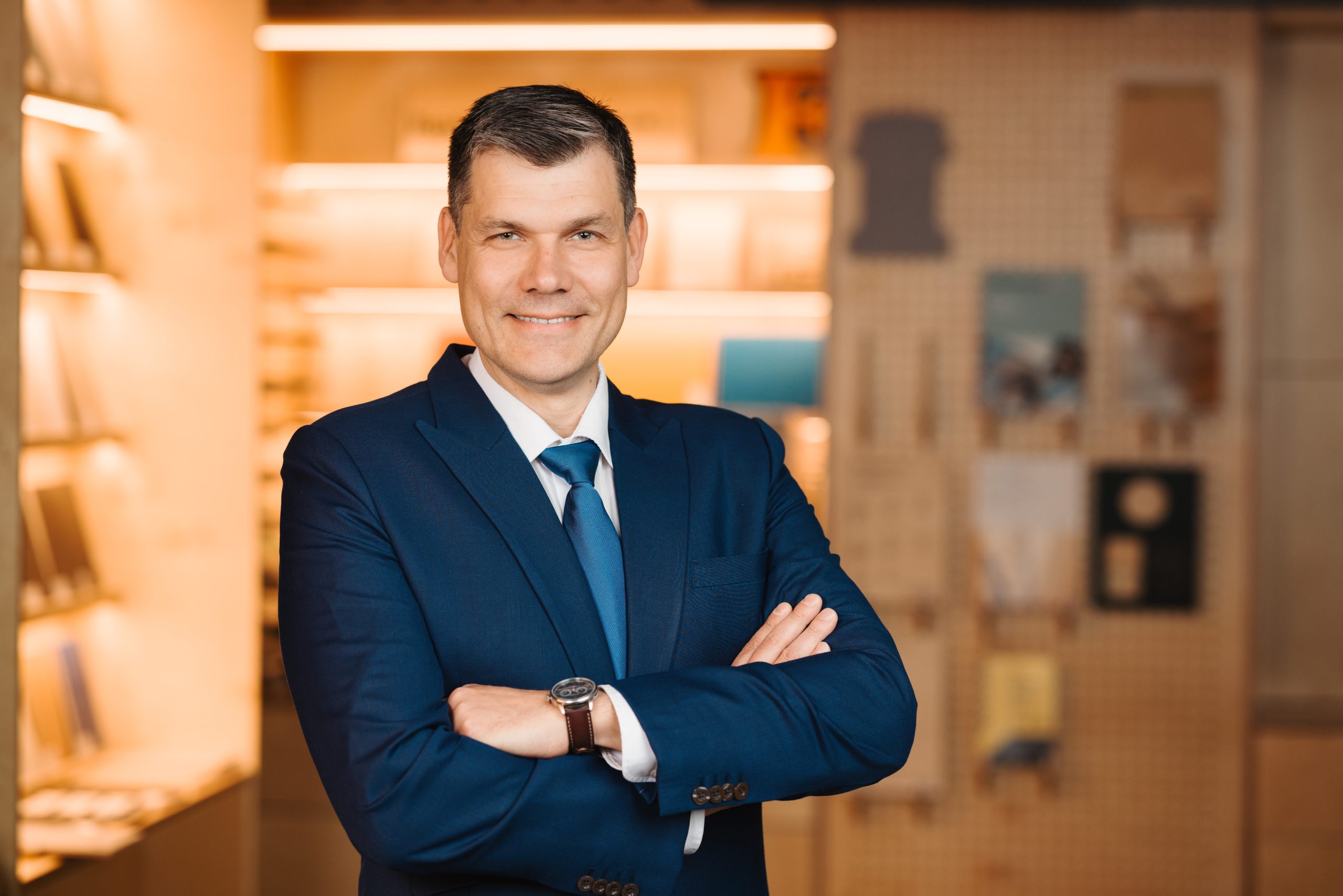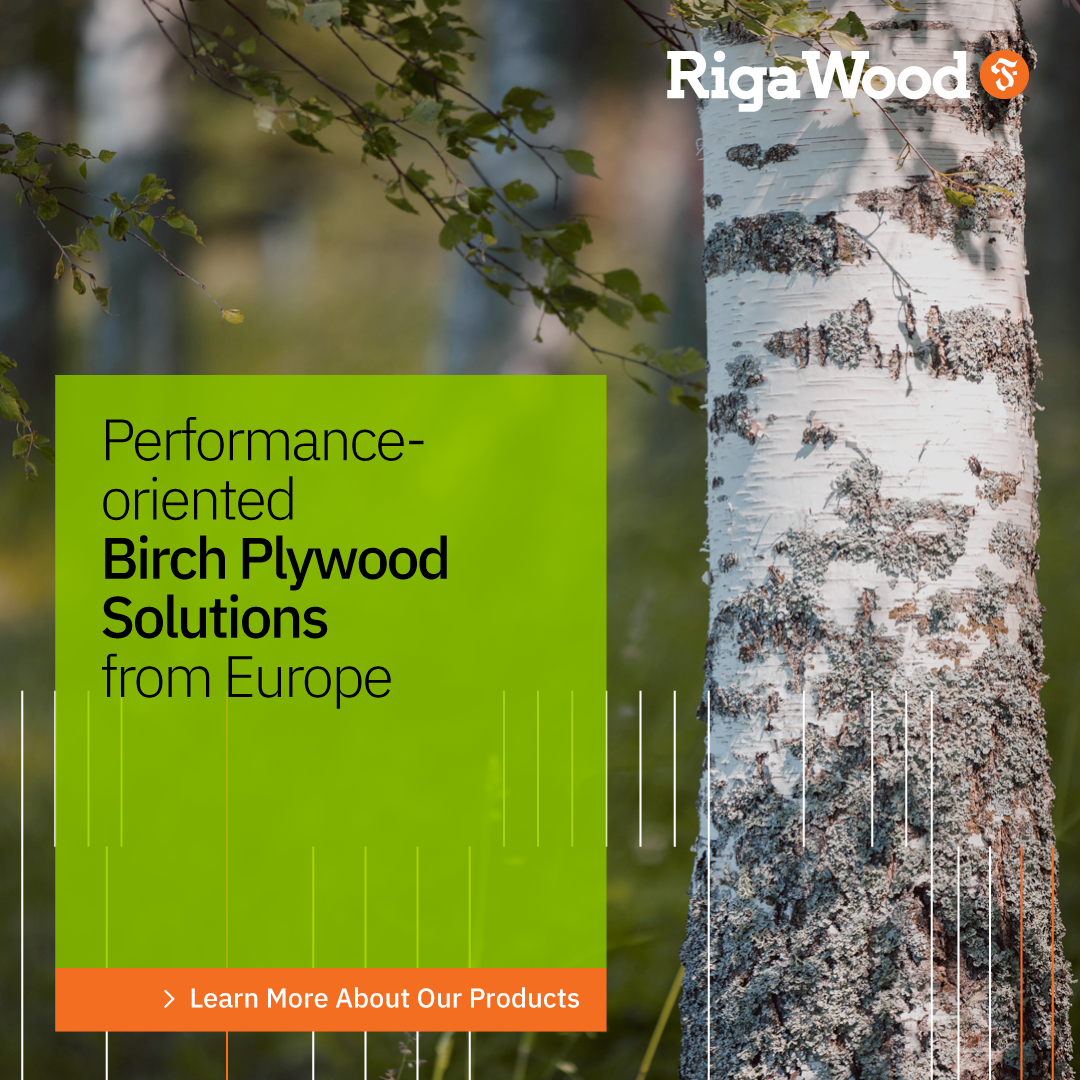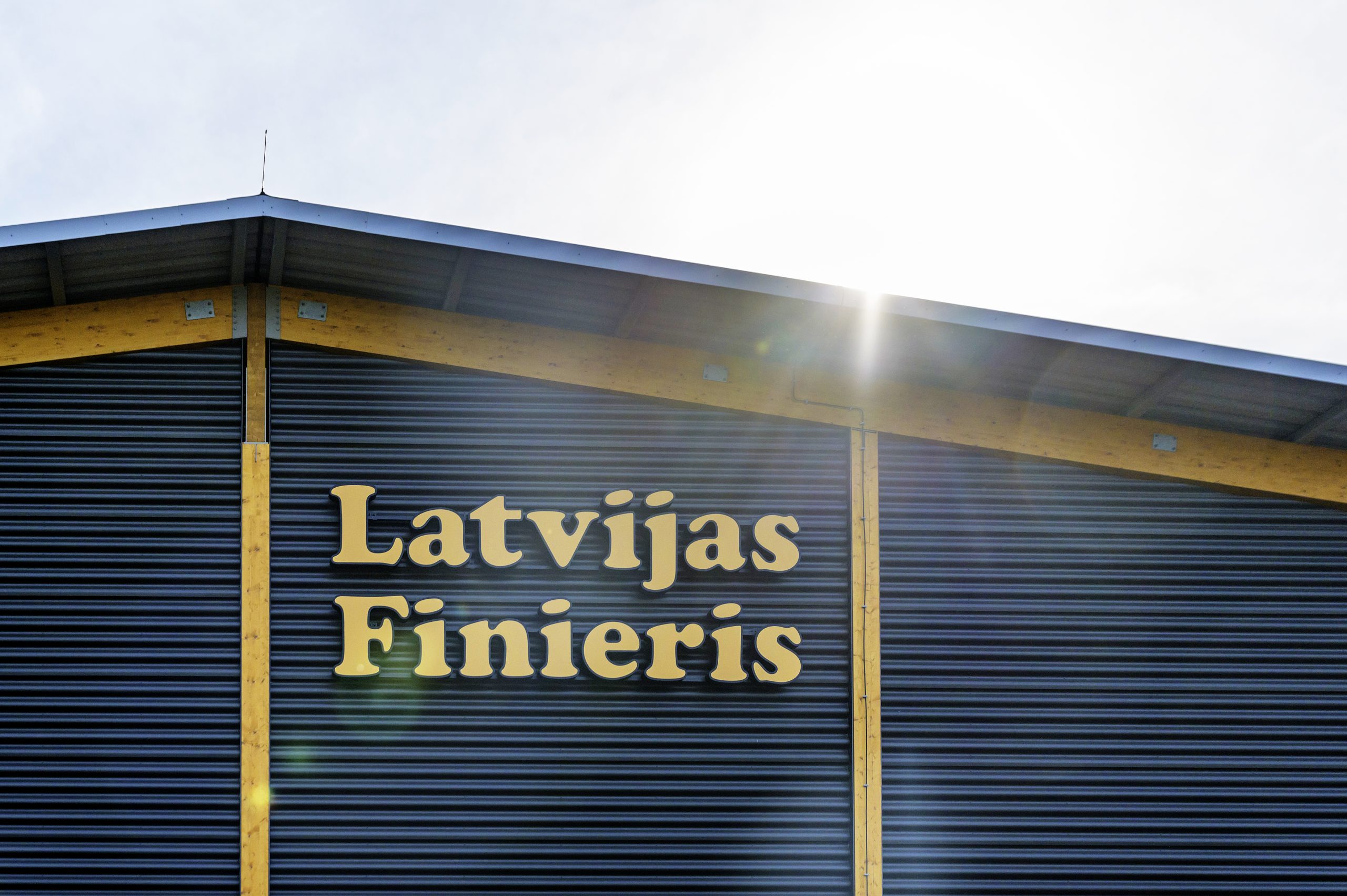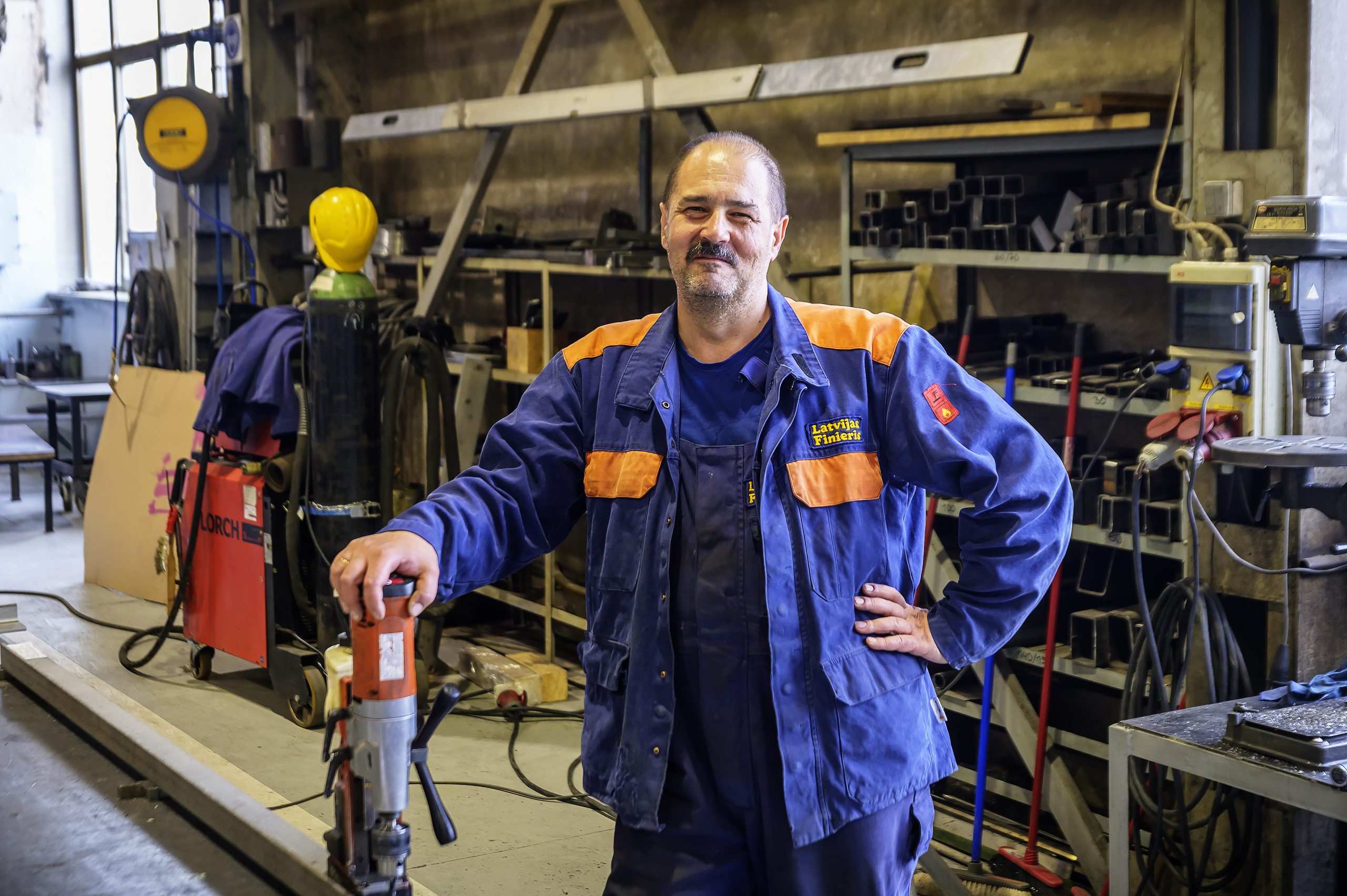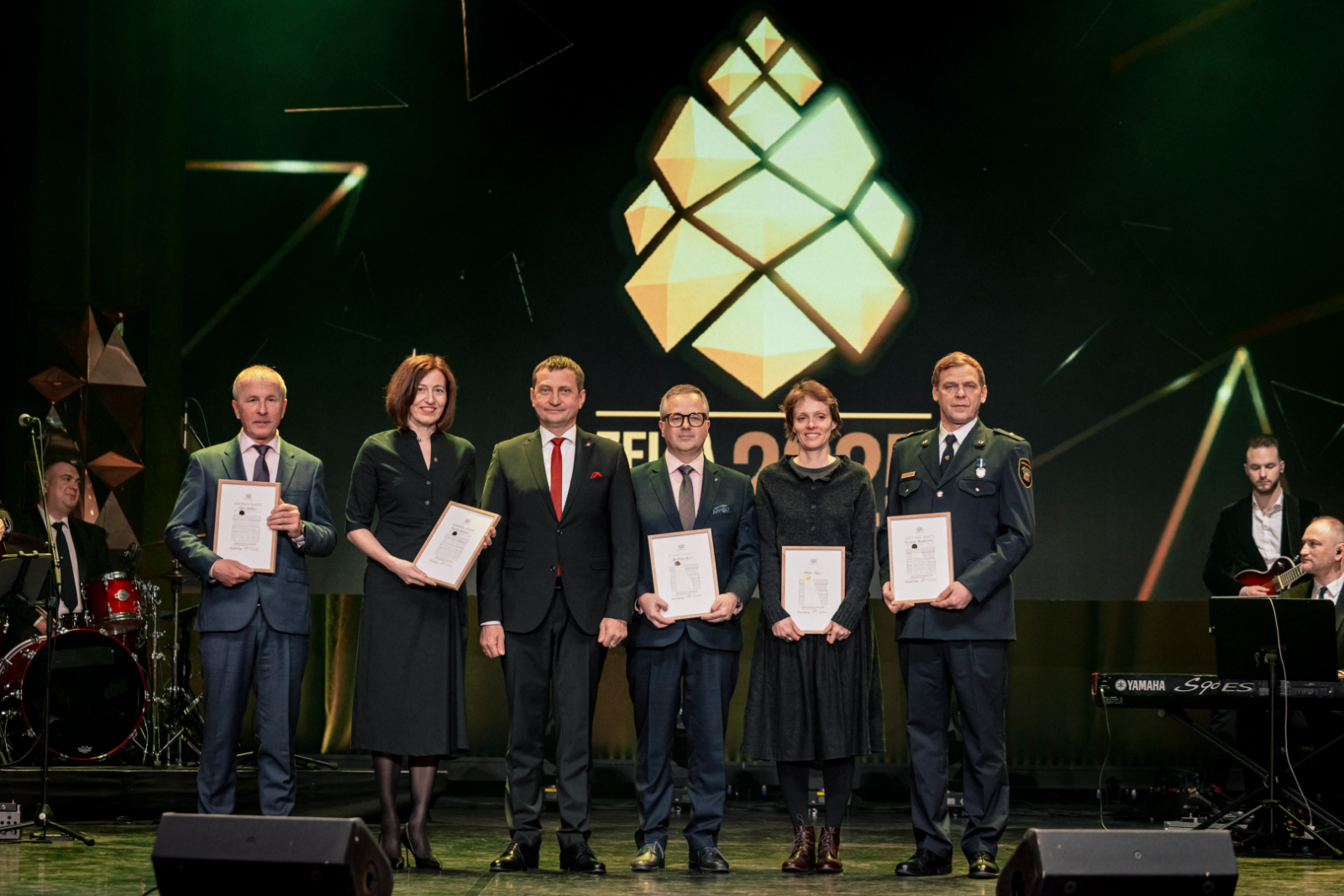From Intern to Master Welder: Ralfs’ Journey of Growth and Stability
06.11.2025
Ralfs Miķelsons has been working at Latvijas Finieris Iekārtu rūpnīca for 11 years. As a certified welder, he talks about his work with clear confidence and genuine pride. The path to this profession was a natural extension of his studies and his desire for practical, responsible work, where precision and stability matter.
“I came to Latvijas Finieris thanks to my teachers. I asked for recommendations and suggestions, as I wanted to get an internship at a good company. They knew that this company takes both work and people seriously. I came for an interview; there were two of us trainees. The Director of Iekārtu rūpnīca and his deputy asked a lot of questions; in the end, we agreed that I would stay on after my internship finished. This is how I started my journey at Iekārtu rūpnīca, and I haven’t looked back.”
Ralfs gained his professional foundation at Riga Metalworking Vocational Secondary School (formerly Riga Vocational School No. 3), where he learnt the trade of a welder.
“My vocational training gave me everything I needed to work at my full potential. Of course, getting started is not easy. Everyone needs time to adjust and learn, but the company strongly supports development and upskilling. It’s impossible to stand still here – something new is happening all the time.”
Work at Iekārtu rūpnīca is technical and responsible. Welders are responsible for ensuring that every part and structure meets the strictest requirements and the highest standards.
“Every welder has to be certified; similar to doctors, we must demonstrate that we can do the work well. There are also different compliance documents for various materials and processes, including pipe welding, plate welding, stainless steel, and more. This is essential for delivering a safe and reliable final result.”
Each day, Ralfs and his colleagues handle structures of all levels of complexity, ranging from small details to major projects.
“The work is very varied. But that’s the beauty of it – you can see how real machines are made from metal parts,” he says. “Welding is a responsible but also very creative profession.”
When it comes to the skills required, Ralfs highlights the importance of both technical and theoretical knowledge.
“Of course, you learn a lot in vocational school, but most of what I know came from the mill, through hands-on practice. At school, everything is theoretical, but here you face real situations and structures of different complexities, and this is where the real experience comes from.”
He jokes that welders occasionally end up working “upside down”, which is a reminder of how dynamic the profession can be.
Ralfs believes that the most important thing is the desire to grow and not being afraid:
“To thrive, you have to keep learning, seek new knowledge, and be ready to face challenges. Knowledge doesn’t just appear; it has to be earned through work and patience.”
He especially appreciates the company’s focus on safety, the well-organised environment, the supportive team, and the company’s care for its people.
“We have a very high level of safety at work. Everything is properly checked and set up, and work clothing and equipment are consistently provided. I have heard from colleagues who came from other mills that they were even surprised by how well organised everything is here. This creates a sense of security and allows you to concentrate on the work at hand. We have lots of bonuses – health insurance, free soup for lunch, fruit, coffee, tea, etc. There is a well-equipped and safe working environment, free parking, and other benefits. This shows that the company cares about people.”
When it comes to young people thinking of becoming welders, Ralfs is straightforward:
“It is important not to live under any illusions. If you want stability and the opportunity to grow, this is the profession for you. Patience and responsibility open the door to real growth. The key is the desire to work and be better. A job as a welder can also be an excellent basis for further career development. After 10 years, you can become an engineer or a master craftsman if you want to study further. The opportunities are there, you just have to be willing to take them.”
Ralfs describes himself as someone who values stability and meaningful work.
“This has been my only job for 11 years, and that in itself says a lot. I feel valued, and I like that people matter here. When you put your heart into the work, the company values it.”
